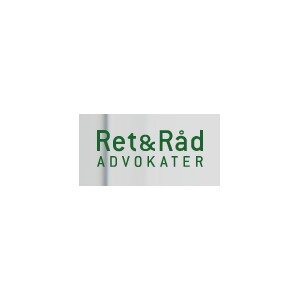Best Trusts Lawyers in Denmark
Share your needs with us, get contacted by law firms.
Free. Takes 2 min.
Or refine your search by selecting a city:
List of the best lawyers in Denmark
About Trusts Law in Denmark
Denmark has a unique approach to trust law compared to countries like the UK or the US. In Denmark, the concept of trusts as understood in common law jurisdictions is not recognized. However, similar functions can be performed using civil law instruments such as foundations (fond) and personal trusts through international arrangements. Danish law focuses more on property holding and administration through different entities like companies and foundations, rather than traditional trusts. This system serves similar purposes, such as asset protection, estate planning, and charitable activities.
Why You May Need a Lawyer
While Denmark does not have a traditional trust system, legal assistance may still be necessary for several reasons:
- Estate Planning: Advisors can help navigate the best structures for protecting and managing estate assets.
- Asset Protection: Consultants can ensure asset protection complies with Danish and international laws.
- Charitable Planning: Setting up a foundation requires specific legal knowledge to comply with Danish regulations.
- Cross-Border Arrangements: If using international trusts, there’s a need for lawyers knowledgeable in both Danish law and international jurisdictions.
- Family Wealth Management: Legal advice is valuable when managing family wealth across generations, particularly with inheritance rules.
Local Laws Overview
Key aspects of Danish law related to trusts and similar structures include:
- Foundations: These are often used for charity and can hold assets but must meet specific requirements set by the Danish Business Authority.
- Inheritance Laws: Denmark has strict inheritance laws that dictate how estates are distributed, which may limit the flexibility seen in trust arrangements elsewhere.
- Tax Implications: Understanding Danish tax law is crucial, as it differs significantly from jurisdictions that use common law trusts.
- International Treaties: Cross-border estate planning may involve navigating international treaties to honor trust-like arrangements.
Frequently Asked Questions
Can I create a traditional trust in Denmark?
No, Denmark does not recognize trust structures as understood in common law countries; however, similar purposes can be achieved through foundations or international arrangements.
What is a Danish foundation?
A Danish foundation is a legal entity established for charitable, cultural, or other purpose-focused functions, with its own set of regulations and requirements.
How are estate assets protected in Denmark?
Estate assets are protected through proper legal planning, often leveraging structures like companies or foundations, and adhering to Danish inheritance laws.
Do Danish laws apply to international trusts?
Danish law generally applies domestically, but if international components are involved, advisers need to align with the respective jurisdiction's laws.
What are the tax implications of setting up a foundation?
Foundations can benefit from unique tax considerations, and professional legal guidance is crucial to navigate these nuances.
How can foreigners manage assets in Denmark?
Foreigners often work with Danish legal experts to comply with local laws and effectively manage assets within the country.
Can a foundation be used for personal purposes?
While technically possible, foundations are primarily intended for charitable or public benefit purposes and have regulatory obligations limiting purely personal use.
How do I set up a foundation in Denmark?
Setting up a foundation involves legal processes, including drafting statutes and registering with the Danish Business Authority; legal assistance can streamline this process.
Are Danish foundations subject to change in laws over time?
Yes, like any legal matter, foundations must adhere to evolving laws and regulations, and periodic legal review is advised.
What is the role of Danish inheritance law in trust-like arrangements?
Danish inheritance laws are crucial in the distribution of assets and can affect how international trusts are perceived and utilized within Denmark.
Additional Resources
For further assistance, the following resources and organizations can be particularly helpful:
- Danish Business Authority (Erhvervsstyrelsen) for foundation registration
- The Ministry of Justice for legislation on inheritance laws
- The Danish Bar and Law Society for connecting with legal professionals
- Local tax authorities for guidance on the financial implications of foundations
Next Steps
If you need legal assistance concerning trusts or equivalent structures in Denmark, consider the following steps:
- Consult with a legal professional specializing in Danish inheritance and trust-like arrangements to understand the options available.
- Prepare necessary documentation and identify your specific needs, whether it's estate planning, tax advice, or setting up a foundation.
- Engage with Danish authorities or international institutions as needed to establish required legal structures.
Seeking a consultation with a law firm specializing in this field is beneficial to ensure compliance and effective implementation of your legal and financial plans.
Lawzana helps you find the best lawyers and law firms in Denmark through a curated and pre-screened list of qualified legal professionals. Our platform offers rankings and detailed profiles of attorneys and law firms, allowing you to compare based on practice areas, including Trusts, experience, and client feedback.
Each profile includes a description of the firm's areas of practice, client reviews, team members and partners, year of establishment, spoken languages, office locations, contact information, social media presence, and any published articles or resources. Most firms on our platform speak English and are experienced in both local and international legal matters.
Get a quote from top-rated law firms in Denmark — quickly, securely, and without unnecessary hassle.
Disclaimer:
The information provided on this page is for general informational purposes only and does not constitute legal advice. While we strive to ensure the accuracy and relevance of the content, legal information may change over time, and interpretations of the law can vary. You should always consult with a qualified legal professional for advice specific to your situation.
We disclaim all liability for actions taken or not taken based on the content of this page. If you believe any information is incorrect or outdated, please contact us, and we will review and update it where appropriate.
Browse trusts law firms by city in Denmark
Refine your search by selecting a city.















